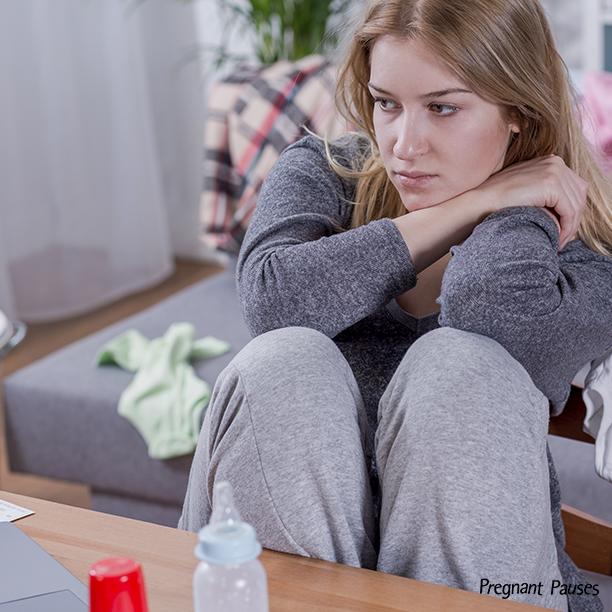Postpartum depression is a term you have probably heard, but may not fully understand. For a long time, there was an unspoken rule that postpartum depression was an off-limits topic. Thankfully, times are changing!
The expectation is that when you have a baby, you are full of blissful happiness and overwhelming love. While that is the ideal scenario, each woman experiences different postpartum emotions following their baby’s birth. Most women experience a mix of positive and negative feelings about the life-altering change of having a new baby.
However, overwhelmingly negative thoughts can be a warning sign of postpartum depression. Whether it’s feeling stressed, anxious, lonely or sad — hormonal changes paired with such a huge life transition can take time to adjust to.
Did you know that according to the American Psychological Association up to 1 in 7 women experience postpartum depression? We wanted to dedicate some space on our blog to addressing postpartum depression and removing some of the taboo surrounding the topic.
What is postpartum depression? First, let’s address the fact that “postpartum depression” encompasses much more than just feeling depressed. This phrase really captures so much more than depression – anxiety, sadness, fear, and inability to sleep or function on a daily basis.
When do the changes begin? Many people see postpartum depression and think that “post” means after, so the depression must begin following the baby’s birth. Disorders like depression don’t just occur postpartum. Women can begin to feel mood changes throughout pregnancy as hormones begin changing and the body prepares for delivery.
The reason it’s called postpartum depression is because of the significantly increased risk of the disorder in the period following a baby’s delivery. While you’re pregnant, it’s easier to cope with your symptoms because your overall routine isn’t changed. But once the baby arrives you have the added strain of adjusting to life as a parent and the changes in your relationship with your significant other.
Who does it affect? Unfortunately, depression does not discriminate. Anyone can suffer from this emotional disorder. However, personal and family history can be an indication of what you’ll experience. If a woman suffers from anxiety, depression or another mood disorder, she is much more likely to experience an increase in those feelings during and after pregnancy. You can think about the micro-changes that occur in your mood during your monthly period as these can be amplified during and after pregnancy.
How can I tell if I may have this disorder? A great “test” is to have someone you trust watch your baby. Are you able to lie down and take a nap, knowing that your little one is well cared for? If not, there is a good chance you are suffering in some way. If you think you may be suffering – even a little bit – don’t be afraid to ask for help. Talk to your doctor, your partner or someone else you trust.
Many women who have suffered with infertility or struggled to conceive feel like they don’t have permission to be sad. Life is such a gift, but having a baby is a huge task and can be very overwhelming. It’s OK not to be happy all of the time. Allowing yourself to feel these negative feelings can help you move past them.
What can I do to help my friend or loved one who may be suffering? First of all, understand that there is an underlying factor that contributes to postpartum depression. During pregnancy, all of the focus is on mom. Once the baby has arrived, all of that attention shifts to the baby and many people “forget” about mom.
If you know your friend is struggling, reach out frequently. Let her know you’re there for her. Before stopping by for a visit, give mom a call and make sure it’s a good time. When you arrive, come with food! Chances are she may forget to eat because she’s so tired and busy. Offer to hold the baby while mom takes a nap or does something for herself. Ask how she is doing and be sure to let HER talk. Sometimes, just venting and talking to a close friend can do wonders for our wellbeing.
Postpartum depression deserves meaningful attention. If you or someone you love may be suffering, reach out to someone for help and don’t be ashamed!


